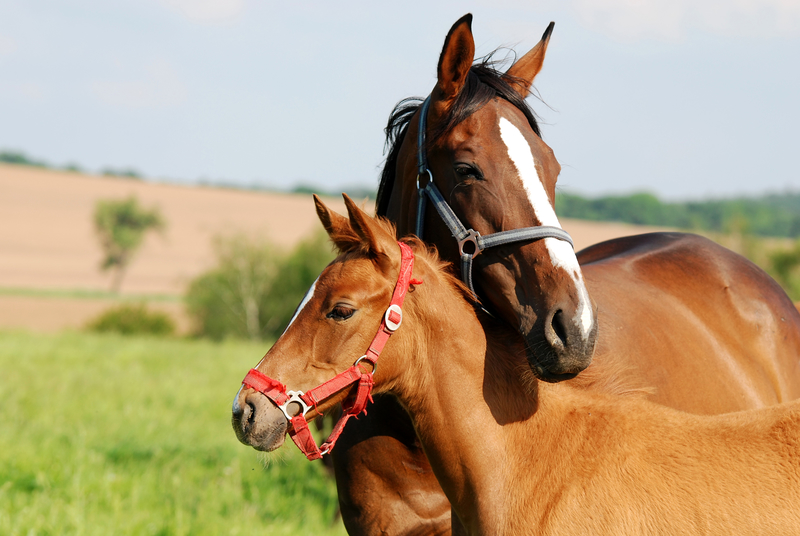Feeding during the rearing phase is particularly important and the well-being of the horse throughout its life depends on it. For broodmares, protein and calcium requirements will be approximately multiplied by 3 between the start of gestation and peak lactation. The ration must be changed month by month according to the changing needs. The hay ration should be moderate but of excellent quality during gestation and then more generous during lactation. Hay for mares must be rich in protein, in order to ensure the development of the foal and lactation, without risking destroying their muscles. The fodder diet must be balanced in calcium and phosphorus so that the brood mare does not draw on its bone reserves and deform its skeleton.


You must be logged in to post a comment.